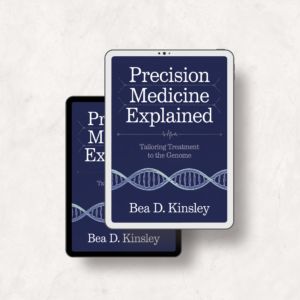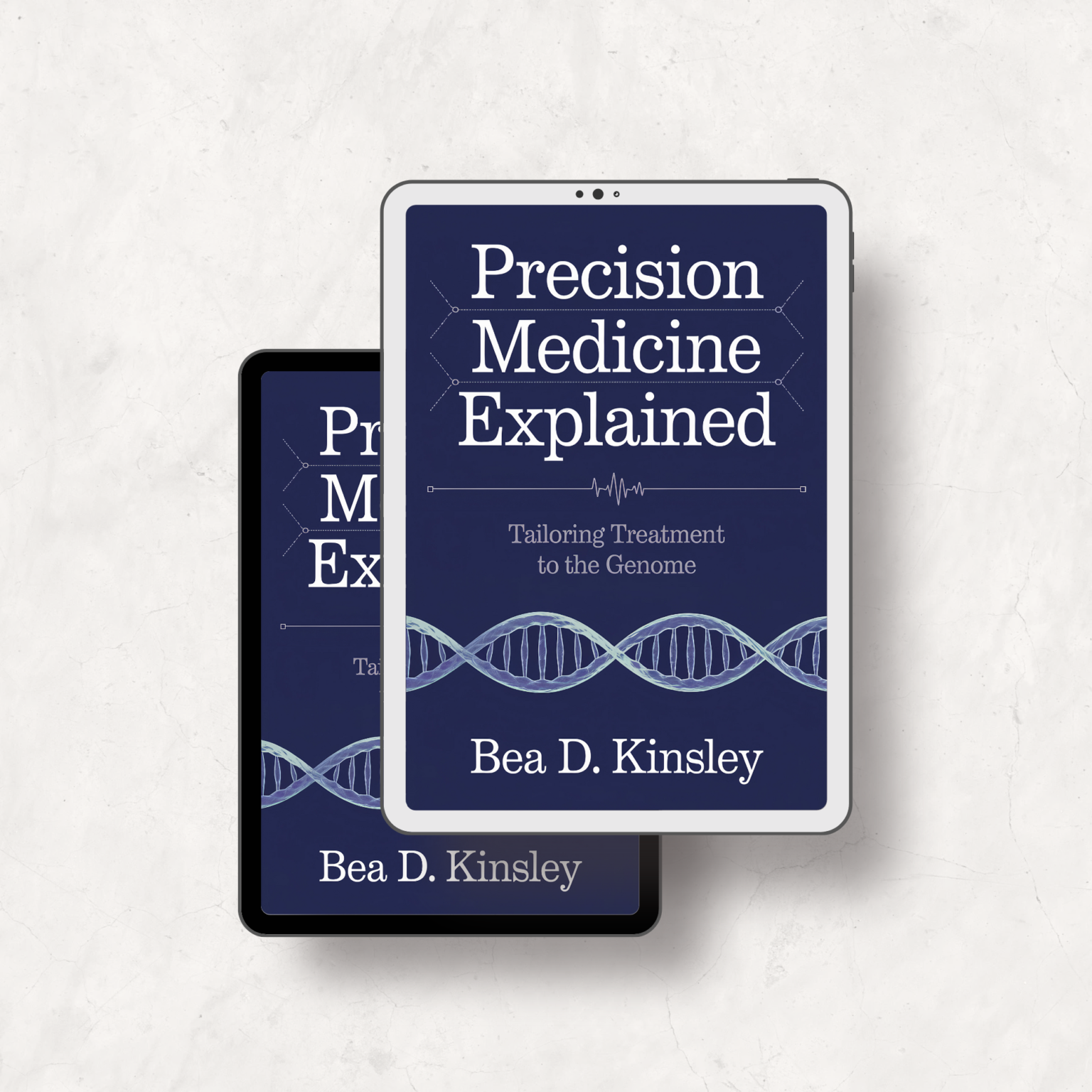Precision Medicine Explained Review – Complete Guide to Personalized Healthcare and Genomic Science

Precision medicine is revolutionizing healthcare by tailoring treatments to your unique genetic makeup, and “Precision Medicine Explained: Tailoring Treatment to the Genome” delivers the essential knowledge you need to understand this transformative field. If you’ve ever wondered how doctors can predict which medications will work best for you or how genetic testing can prevent diseases before they develop, this comprehensive guide provides clear answers without overwhelming medical jargon. Unlike other complex medical textbooks, this book makes genomic science accessible to everyone, from curious patients to healthcare professionals seeking practical insights into personalized healthcare solutions.
This expertly crafted ebook bridges the gap between cutting-edge genomic research and real-world medical applications, showing you how precision medicine is already changing lives through targeted therapies, pharmacogenomics, and predictive genetic testing. You’ll discover how this personalized approach reduces side effects, improves treatment outcomes, and empowers patients to take control of their health journey like never before.
What You’ll Discover
- Master Genomic Fundamentals: Learn complex genetic concepts explained in simple terms, making precision medicine accessible without overwhelming scientific jargon
- Discover Personalized Treatment Options: Understand how genetic testing guides targeted therapies that match your unique DNA profile for maximum effectiveness
- Overcome Medication Trial-and-Error: Learn how pharmacogenomics eliminates guesswork in drug selection, preventing adverse reactions and optimizing dosages
- Transform Disease Prevention Strategies: Master genetic risk assessment techniques that enable proactive healthcare decisions before symptoms appear
- Navigate Ethical Genetic Testing Decisions: Understand privacy concerns, consent processes, and discrimination protections in genomic healthcare
- Empower Your Healthcare Journey: Gain confidence to discuss genetic testing options with providers and advocate for personalized treatment approaches
Why This Book Matters
Traditional medicine’s one-size-fits-all approach is becoming obsolete as genomic science reveals why identical treatments produce vastly different results in different patients. This comprehensive guide addresses the transformation happening in healthcare right now, giving you the knowledge to participate actively in precision medicine decisions that could dramatically improve your health outcomes. The book tackles real concerns about genetic privacy, healthcare accessibility, and ethical implications while demonstrating how personalized therapies are already saving lives through targeted cancer treatments and customized medication protocols.
Whether you’re considering genetic testing for yourself or a family member, working in healthcare, or simply curious about the future of medicine, this book provides immediate practical value. You’ll understand how to interpret genetic test results, when to seek genomic counseling, and how to work with healthcare providers who may still be learning about precision medicine applications.
Key Features
This comprehensive ebook spans multiple detailed chapters covering genomic fundamentals, clinical applications, ethical considerations, and future healthcare innovations. Available as an instant digital download, you’ll receive immediate access to real-world case studies, practical decision-making frameworks, and actionable guidance for navigating genetic testing options. The format allows for easy reading on any device, with printable reference materials for healthcare discussions. Also available as audiobook on Google Play Books and Spotify for convenient listening during commutes or workouts.
Frequently Asked Questions
Is genetic testing covered by insurance and how much does precision medicine cost?
Most major insurance plans now cover medically necessary genetic testing when ordered by healthcare providers, especially for cancer risk assessment and treatment selection. The book explains how to work with providers to ensure proper coverage and discusses cost-effective testing options for different clinical situations.
Will genetic testing results affect my privacy or insurance eligibility?
Federal laws like GINA protect against genetic discrimination in health insurance and employment, though gaps exist for life insurance and disability coverage. The book provides detailed guidance on privacy protection strategies and explains current legal protections while helping you make informed consent decisions.
How accurate is genetic testing and can results change over time?
Modern genetic testing is highly accurate, but interpretation evolves as scientific knowledge advances. The book explains how to understand test limitations, when retesting might be recommended, and how to stay updated on new findings related to your genetic profile.
Get Your Copy Today
Transform your understanding of personalized healthcare with this comprehensive precision medicine guide. Available for instant download at just $6.99, this ebook provides exceptional value compared to expensive medical courses or genetic counseling sessions. Also available as audiobook on Google Play Books and Spotify. Purchase your copy through all major ebook retailers including Apple Books, Barnes & Noble, and Kobo to begin your genomic healthcare journey today.
Watch the Video Review

